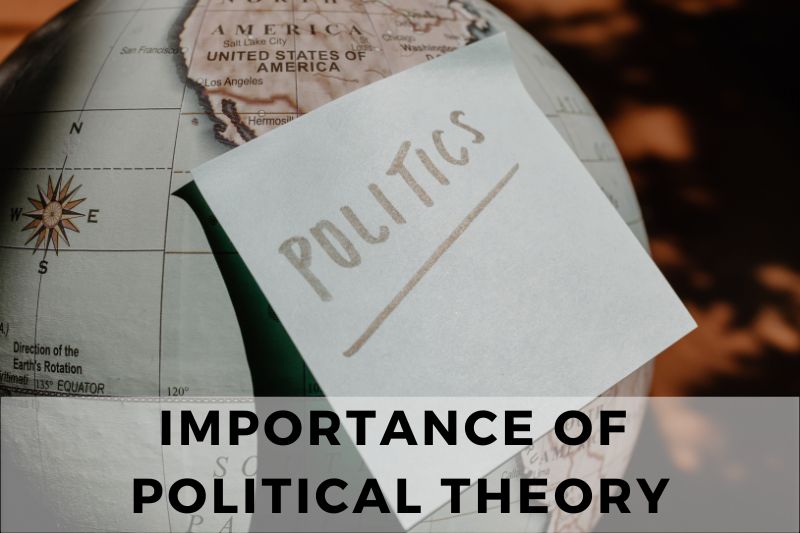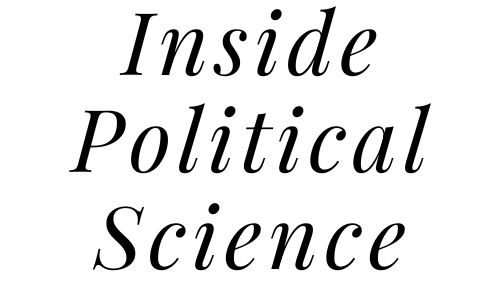
Political theory is a critical component of political science that examines the ideas, principles, and concepts that underpin political systems and governance. It explores fundamental questions about justice, authority, freedom, and power, offering insights into how societies organize themselves and how political structures evolve.
Understanding political theory is essential for analyzing the complexities of modern politics, as it not only shapes our understanding of the past but also informs current political debates and decisions. This article explores the significance of political theory in political science, highlighting its role in shaping governance, guiding public policy, and fostering critical political engagement.
Defining Political Theory
Political theory refers to the study of ideas about politics, focusing on the concepts and ideologies that guide political behavior, structures, and institutions. It involves the exploration of fundamental questions regarding the nature of justice, democracy, power, authority, rights, and governance. Political theorists analyze the works of influential philosophers, from ancient thinkers like Plato and Aristotle to modern theorists such as Hobbes, Locke, and Marx, to better understand how political systems operate and how they should function.
At its core, political theory seeks to answer pressing questions about the role of individuals within society, the distribution of power, and the moral and ethical principles that govern political decisions. It does not merely describe the world of politics as it is but offers visions of what it could or should be, based on differing ideological perspectives. Political theory provides a foundation for understanding and critiquing political institutions and ideas, making it indispensable to the study of political science.
The Relationship Between Political Theory and Political Science
Political theory and political science are closely intertwined, yet they differ in their focus and methods. Political science is the empirical study of political systems, behavior, and institutions, utilizing scientific methods to observe, analyze, and predict political outcomes. It encompasses a broad range of subfields, including comparative politics, international relations, and public administration.
On the other hand, political theory provides the philosophical foundation for political science. It delves into the abstract principles and ideas that underlie political systems and behaviors. While political science focuses on describing and explaining political phenomena, political theory is concerned with questioning the legitimacy of these phenomena, proposing normative frameworks, and offering critiques of existing political structures.
In essence, political theory provides the ideological tools necessary to interpret and understand the data and findings of political science. Political science offers practical, data-driven insights into how political systems function in the real world, while political theory challenges those systems, helping to shape new ideas and visions for political practice. Both fields are essential in the study of politics, as they complement each other and provide a deeper, more comprehensive understanding of the political landscape.
Reasons for the Importance of Political Theory and Its Study
Political theory plays a pivotal role in shaping our understanding of political systems, providing the intellectual framework needed to analyze and critique political ideas, structures, and practices. Below are several key reasons why political theory and its study are essential to political science:
#1. Foundation of Political Science
Political theory serves as the foundational pillar upon which political science is built. It offers the concepts and ideologies that define how we understand power, governance, justice, and society. Without political theory, political science would lack the philosophical basis to question, interpret, or critique political systems. Political theory establishes the groundwork for empirical studies, allowing political scientists to ground their research in normative frameworks and theoretical ideas.
#2. Shaping Governance Models
Political theory is crucial in the development of governance models and political systems. It provides the principles that influence the design of political institutions, such as democracy, authoritarianism, socialism, and liberalism. Through the analysis of theories like those of Rousseau or Hobbes, political theory helps us understand the nature of the state, the rights of individuals, and the relationship between the governed and the government. These theories offer diverse visions of how societies can be structured and governed.
#3. Guiding Public Policy
Public policy decisions are often informed by political theories that advocate for certain values or ideals. Political theory provides the philosophical framework through which policymakers can justify their actions, such as decisions related to justice, equality, and human rights. Theories of distributive justice, for instance, help policymakers understand how resources should be allocated fairly within society. Thus, political theory plays a vital role in shaping both the direction and the ethical considerations of public policy.
#4. Understanding Power and Authority
Political theory provides critical insights into the concepts of power and authority, which are central to any political system. It explores questions such as: What justifies the authority of the state? How is power distributed within society? The study of political theory helps to clarify the legitimacy of political power and the boundaries within which it can be exercised. Theories on sovereignty, consent, and legitimacy offer tools to analyze political authority and its impact on society.
#5. Critical Thinking and Political Debate
The study of political theory nurtures critical thinking by encouraging individuals to examine political issues from multiple perspectives. It challenges assumptions and fosters a deeper understanding of the values that underpin political beliefs. Political theory helps sharpen the tools of analysis and argumentation, promoting a more informed and thoughtful public discourse. It teaches us to question accepted norms and ideologies, enabling a more nuanced approach to political debate and decision-making.
#6. Addressing Contemporary Issues
Political theory is indispensable in addressing contemporary issues such as climate change, global inequality, and social justice. By providing a theoretical framework for understanding modern challenges, political theory helps guide responses to these issues. It allows us to think critically about current political struggles and propose innovative solutions based on theoretical principles. Political theory thus provides a lens through which contemporary problems can be understood and addressed from a broader ethical, moral, and ideological standpoint.
#7. Developing Ideological Frameworks
Political theory plays a central role in the development of ideologies, providing the philosophical foundations for movements and beliefs that shape political behavior. Ideologies such as liberalism, conservatism, and socialism have their roots in political theory. Theories of human nature, justice, and governance underpin these ideologies, helping to articulate the values and beliefs that define political movements. Political theory is essential in shaping the ideological frameworks that guide political action and discourse.
#8. Promoting Civic Engagement
Political theory encourages citizens to engage with political processes by providing them with the intellectual tools to critically analyze and understand political systems. It fosters an informed citizenry capable of participating in political debates, voting, and advocating for policies that reflect their values. By understanding the principles of democracy, justice, and rights, individuals can actively contribute to the political life of their communities and nations.
#9. Influencing Political Philosophy and Ethics
Political theory is deeply connected to political philosophy and ethics, helping to define what is considered just, fair, and right in the realm of politics. It provides the ethical framework through which political actions and decisions are evaluated. Political theorists engage with fundamental ethical questions, such as what constitutes a just society or the moral limits of state power. By studying political theory, we can develop a deeper understanding of the moral principles that guide political decisions and governance.
#10. Evolution of Political Thought
Political theory has evolved over time, reflecting changes in political contexts, social structures, and philosophical ideas. By studying the history of political thought, we gain insights into how political ideas have developed and adapted to changing circumstances. This historical perspective helps us understand the evolution of political institutions, systems, and ideologies. It also allows us to trace the roots of current political debates and to appreciate the diversity of thought that has shaped modern politics.
#11. Providing a Context for History and Culture
Political theory is closely tied to history and culture, as it provides the context in which political systems emerge and evolve. The theories developed by political thinkers often reflect the historical and cultural conditions of their time, helping us understand the political struggles and societal changes that shaped them. By studying political theory, we gain a deeper appreciation for the historical and cultural forces that have influenced political systems and ideologies across different regions and periods.
Conclusion
Political theory is an indispensable element of political science, offering both a critical framework for understanding political systems and a means of addressing contemporary political challenges. It provides the philosophical foundation for political science, shapes governance models, guides public policy, and fosters critical thinking in political debates. By examining the concepts of power, authority, and justice, political theory enables us to better understand the complex dynamics that govern society.
As political landscapes continue to evolve, the study of political theory remains vital for developing new ideas and frameworks that can guide future political practices. It not only equips individuals with the intellectual tools to engage in meaningful political discourse but also plays a central role in shaping the political ideologies and ethical standards that influence our world.
